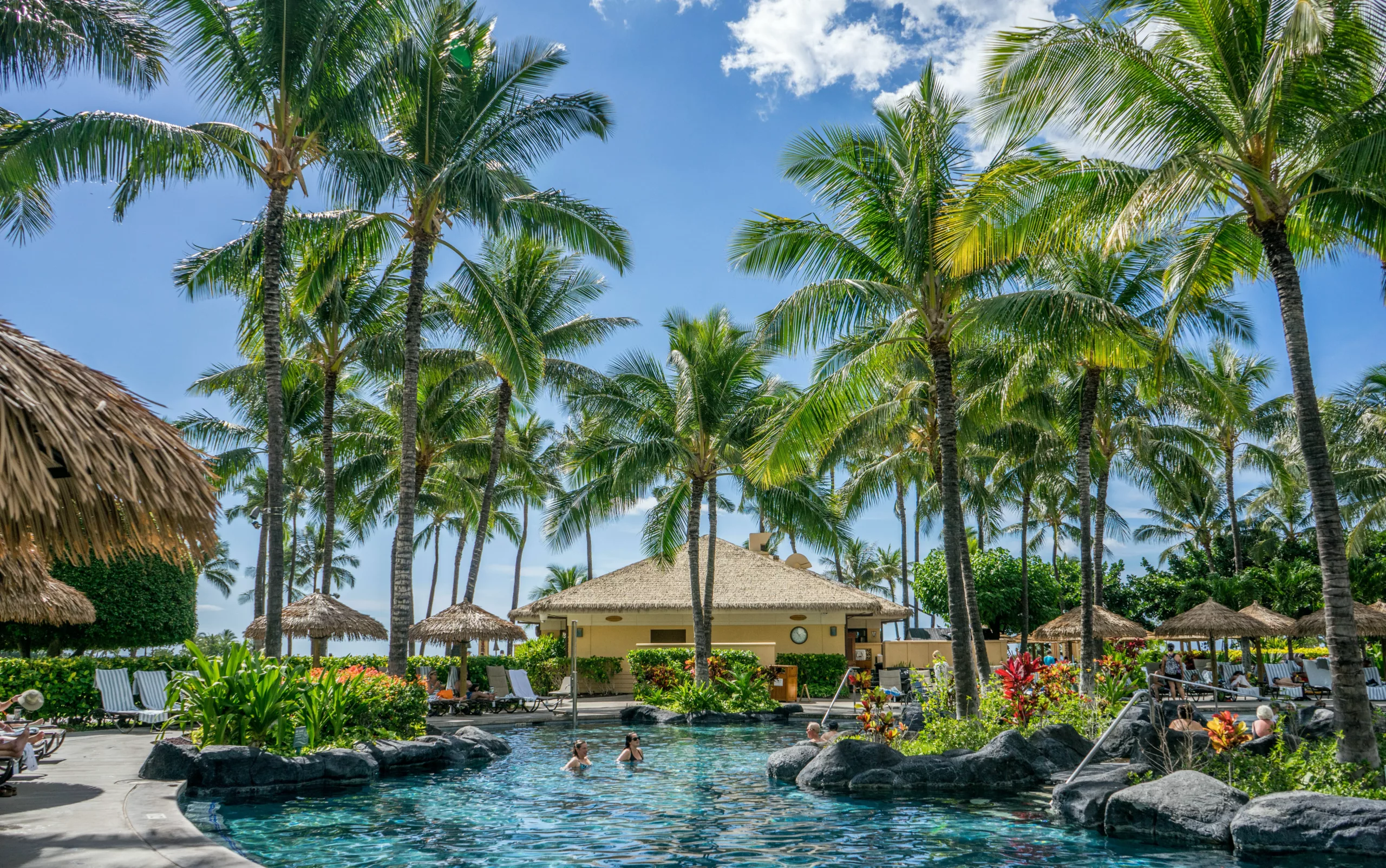Taking a vacation is often seen as the ultimate solution for all your problems. As a traveler who is environmentally conscious, you may have thought about the impact your trips have on the planet and society. Perhaps you may want to contribute to the communities you visit or reduce your carbon footprint due to the growing climate change concerns. This is where the concept of Eco travel comes in!
To help you plan your next green vacation, in this comprehensive guide, we will delve into the world of eco-lodges, eco-hotels, and eco-resorts. We will explore the key differences, sustainable practices, and the benefits they offer to travelers and the planet. By the end of this guide, you will be equipped with the knowledge and resources to embark on an eco-friendly vacation.
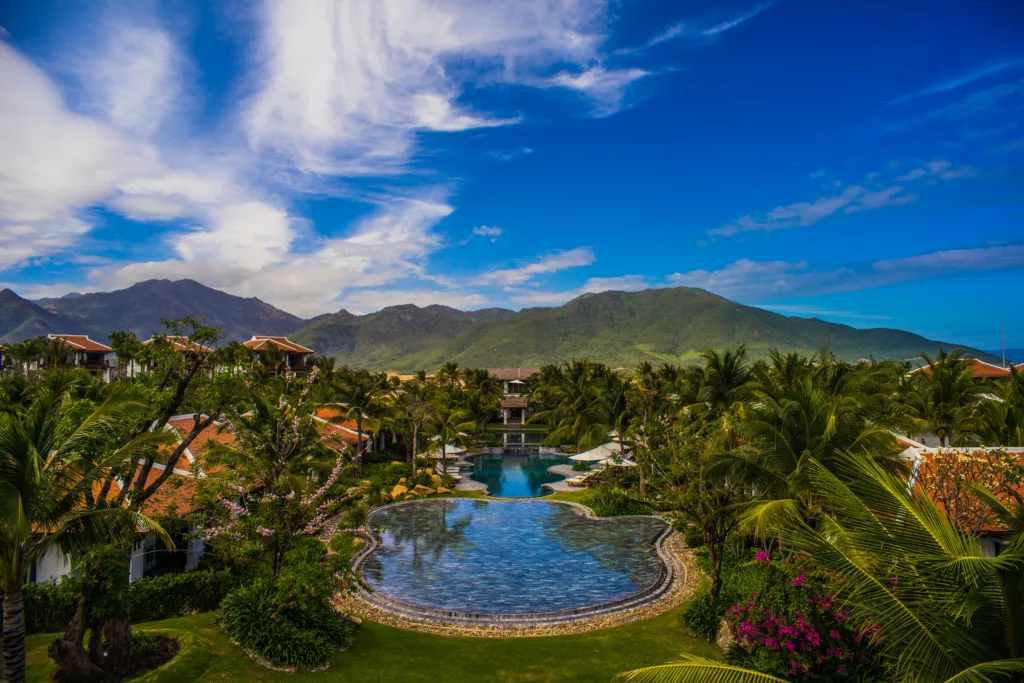
What is Eco-Tourism?
According to The International Ecotourism Society, the definition of ecotourism is “responsible travel to natural areas that conserves the environment, sustains the well-being of the local people and involves interpretation and education” with an emphasis on educating staff and guests.
Or, in simple words, we can say that ecotourism is tourism centered around the conservation of the natural environment while supporting the local communities, educating travelers about the importance of the environment, and imparting knowledge about the cultural heritage of the locals.
Research shows that global interest in ecotourism has grown rapidly in recent years. The Travel Trends & Statistics report by the Center For Responsible Travel reveals that 21% of consumers are willing to pay a higher price to travel with a company that has a strong environmental and social record.
Why Choose Eco-Tourism?
Tourism has experienced significant growth over the years. In 1950, there were only 25 million international arrivals, but by 1990, this number had increased exponentially to 435 million. From 1990 to 2018, international arrivals tripled to 1.442 billion. And by 2030, this number is expected to reach 1.8 billion unequivocally. This tremendous growth has significant economic benefits for the country but also poses substantial challenges to the local communities and the environment.
For this reason, Eco-travel has emerged as a powerful movement in the tourism industry with increasing concerns about environmental conservation and the desire to minimize the negative impact of travel. Eco-travel offers a way for individuals to explore the world while supporting sustainable practices.
The concept of ecotourism/travel goes beyond simply reducing carbon emissions. It encompasses a holistic approach that embraces sustainable principles, such as conserving natural resources, supporting local economies, preserving cultural heritage, and fostering community engagement. By practicing eco-travel, travelers can make a positive difference while experiencing an enriching and authentic travel experience.
What are the Ecotourism Principles and Practices?
Ecotourism involves bringing together conservation, communities, and sustainable travel. To achieve this, those involved in implementing, participating in, and marketing ecotourism activities should adhere to the following ecotourism principles:
- Minimize physical, social, behavioral, and psychological impacts.
- Build environmental and cultural awareness and respect.
- Provide positive experiences for both visitors and hosts.
- Provide direct financial benefits for conservation.
- Generate financial benefits for both local people and private industry.
- Deliver memorable interpretative experiences to visitors that help raise sensitivity to host countries’ political, environmental, and social climates.
- Design, construct and operate low-impact facilities.
- Recognize the rights and spiritual beliefs of the Indigenous People in your community and work in partnership with them to create empowerment.
Practices in Eco-Hotel, Eco-Lodge, Eco-Resort
Characteristics or practices’ of any eco-friendly accommodation will be more or less the same and focus on environmental conservation and sustainable use of natural resources while also supporting the local communities. These are but not limited to the following:
- Eco-accommodations contribute to the local economies and help demonstrate that ecotourism is a more sustainable approach for travelers.
- People who are trained in biology or have significant knowledge are employed as nature guides. They can provide educational tours to tourists about the local ecosystem and culture.
- These accommodations have a sustainable infrastructure, and rainwater harvesting tanks, and are certified by various national and international organizations focusing on green travel.
- Some of the newly constructed buildings are made of natural products like bamboo, reclaimed wood, recycled glass, or plastic.
- Food is sourced locally and is usually organic, and crockery is non-disposable.
- They frequently employ energy-saving strategies, and energy-efficient lighting, and may utilize renewable energy technology.
- All the products are sustainable: sheets and linens are organic, and toiletries are reusable/refillable & ordered in bulk from organic vendors to reduce waste.
- Gray water recycling is done; this water is then used for gardening and landscaping.
- They have Strict solid waste management rules.
Differences Between Eco-Hotel, Eco-Lodge, Eco-Resort
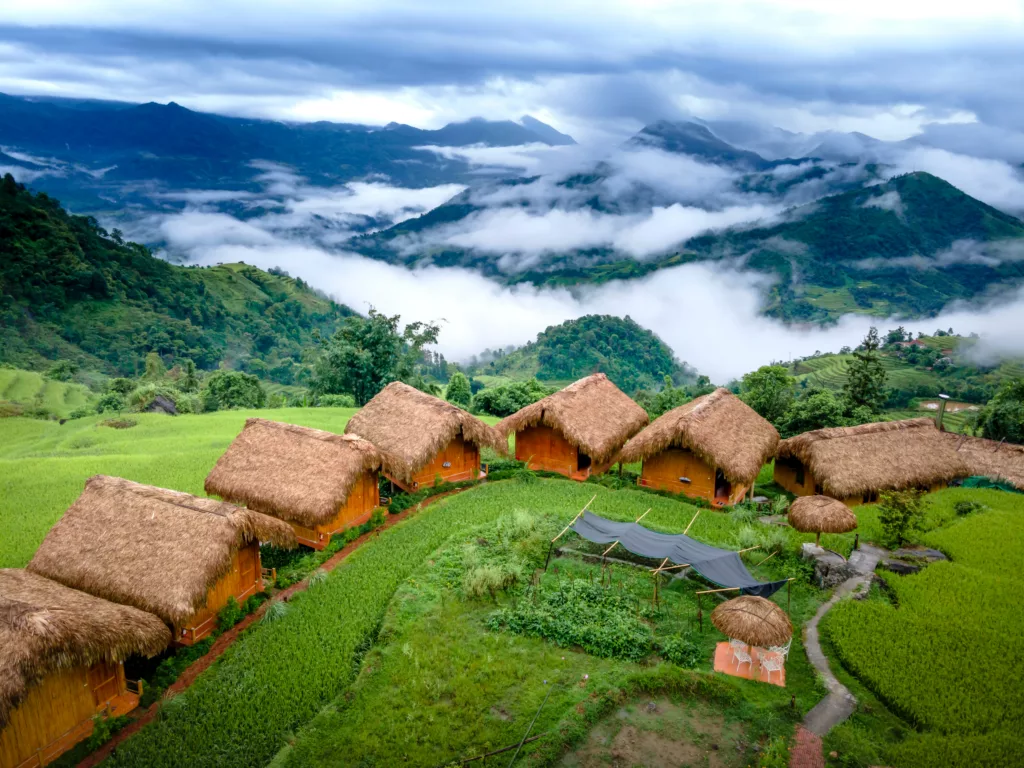
The concept of ecotourism is centered around responsible travel to natural areas, conserving the environment, engaging in eco-friendly practices, and improving the well-being of local communities.
The primary difference between an eco-resort, eco-lodge, and eco-hotel is the settling in which you’ll find them. Eco resorts and lodges are located in pristine natural environments, and the difference usually is the amount of services provided in them and the size of the property. Eco-resorts are usually located in large properties like isolated islands, mountains, etc., and provide many amenities like spas, choices of restaurants, and local tours. However, these terms are used interchangeably. Eco hotels are often associated with cities and towns, but that’s not the case always. In the past, these hotels were commonly referred to as eco-lodges due to their location in jungles and their use of traditional building methods crafted by skilled locals.
The best eco-accommodations offer recycling services, eco-friendly toiletries, energy efficient and well-illuminated infrastructure, source their food locally, have organic linens, non-toxic cleaning supplies, reusable crockery, water conservation methods, operate on renewable energy, and have various other initiatives focused on sustainable living practices.
Therefore, eco-hotel, eco-lodge, and eco-resort all have one thing in common, i.e., they are all “green” accommodation options emphasizing elements such as environmental responsibility and minimizing the negative impact of tourism. So you can choose whatever option you want, but as long as it’s “green,” you’re good to go!
Benefits of eco-travel for Communities and the Environment
Ecotourism offers a plethora of benefits not just to the environment but to the local communities as well. While as a traveler, you can have an experience of a lifetime, indulging in the rich cultural heritage of the locals and having an overall immersive experience. Some of these benefits are listed below:
- It helps combat climate change as the concept revolves around the conservation of natural resources; thus, by supporting responsible travel, you can help lower carbon emissions.
- Ecotourism often provides incentives to enhance conservation efforts for biodiversity protection and preservation of natural resources.
- Responsible travel will help boost the income of locals and address problems like poverty while empowering the indigenous communities by creating employment opportunities.
- Ecotourism activities promote environmental awareness among travelers and locals by educating them about the importance of biodiversity conservation.
- Ecotourism offers a more authentic travel experience than simply visiting landmarks, museums, and other popular sites. It allows travelers to gain a better understanding and appreciation of the natural world.
- Both visitors and locals have the opportunity to share and learn about each other’s cultural values and traditions. Additionally, travelers have the chance to fully immerse themselves in the diverse cultures of the world.
One example is the tropical forests in Tambopata, which are currently under threat of deforestation. However, local lodge owners have recognized the potential for profits through ecotourism and have invested in preserving forested lands while implementing conservation efforts to ensure continued forest cover.
Overall, ecotourism is a great alternative to traditional tourism, which often has a huge carbon footprint and pollutes the environment while also affecting local communities.
What are the Famous Ecotourism Activities?

Many people enjoy ecotourism activities as a way to interact with nature responsibly and sustainably. By minimizing the impact on the natural environment, ecotourism allows for an authentic and immersive experience that fosters a growing appreciation for the natural world. As a result, ecotourism is quickly becoming one of the fastest-growing sectors in the tourism industry. Some of the fun activities you can do are:
Hiking or Trekking Through Nature
Engaging in ecotourism through hiking and trekking is one of the best activities you can do. You can opt for beginner-friendly or advanced options depending on your skill level. You can choose to go on single-day hikes or embark on multi-day expeditions to explore diverse terrains such as deserts, jungles, and mountains.
A Small-Group Eco-Tour
Small-group tours are an excellent option for exploring the natural world if you’re interested in nature, ecotourism, and adventure. These tours are designed to be ethical and immersive, allowing travelers to witness some of the world’s most incredible wildlife in a responsible manner.
Cycling
Ecotourism activities are gaining popularity, and cycling holidays are among the top choices. The biggest plus point? It combines exercise with the beauty of nature. The freedom of strapping your bag to the bike and cycling off allows you to explore places inaccessible by cars, such as mountain trails and off-road routes!
Diving or Snorkeling
Exploring the marine world is an unforgettable experience. Life underwater is diverse and colorful, with corals and fishes of hundreds of different types. But be careful not to damage these extremely fragile ecosystems. Also, sunscreens contain harmful chemicals that can damage corals, so make sure you’re wearing a coral-safe sunscreen.
Dolphin or Whale Watching
It is a once-in-a-lifetime experience if you get to see a dolphin or a whale. But ensure that you do not feed or touch them as these species are wild; any human interference is a no. Also, choose responsible travel guides and take care of your safety if you are planning on doing such activities.
There are plenty of other activities that you can do depending on the location you’re traveling to and the kind of landscape there. If you plan to engage in activities like diving or whale watching activity, make sure to select travel companies that prioritize responsible practices. Look for those with marine biologists on board or donate some of their profits towards conservation efforts. Overall you will have plenty of eco-friendly activity options to keep you engaged!
Exploring Eco-Lodges, Eco-Hotels & Eco-Resorts
Eco-Lodges
Typically, these establishments have fewer than 30 rooms, making them smaller and less impactful on the environment. Eco-lodges are usually located in isolated locations in jungles and forests and can be found around the world, especially in African countries, Indonesia, Gambia, and Costa Rica. These accommodations are found in areas that are much more nature-focused.
Best Eco-Lodges For Your Next Travel:
Sarinbuana Eco-Lodge, Bali
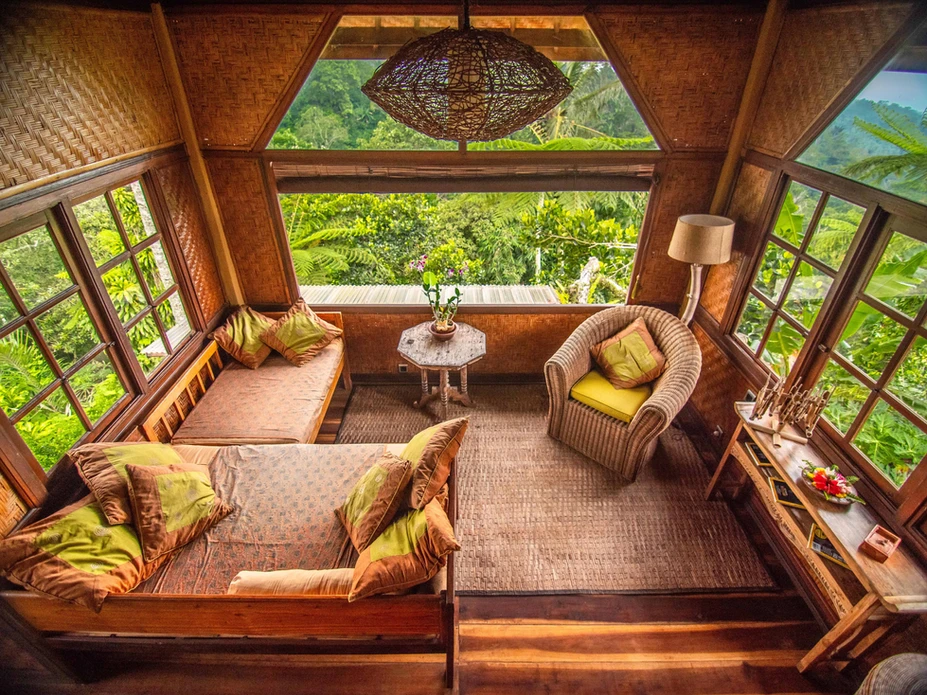
Nestled amidst the lush greenery of Bali, Sarinbuana Eco-Lodge offers a tranquil and sustainable haven for eco-conscious travelers. This eco-lodge embraces a harmonious blend of traditional Balinese architecture and modern eco-friendly practices. From its eco-friendly accommodations made with natural materials to its organic farm-to-table dining, baliecolodge.com strives to minimize its environmental footprint while providing guests with a memorable and rejuvenating stay.
Terragna Mountain Hut, Italy
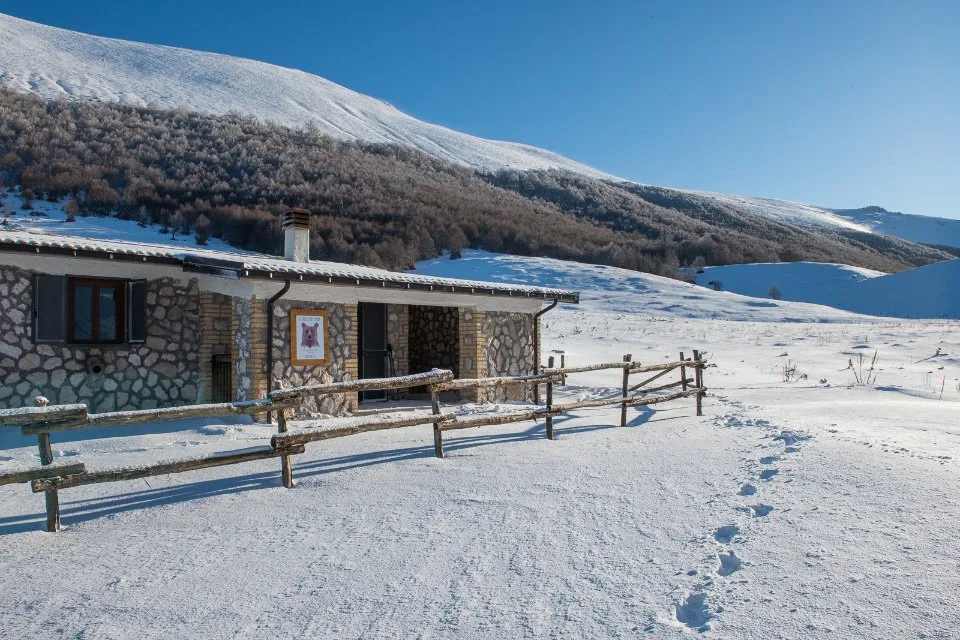
Terragna Mountain Hut, a captivating destination offered by Wildlife Adventures, is a hidden gem nestled in the breathtaking Italian wilderness. Surrounded by stunning vistas, lush forests, and captivating wildlife, Terragna Mountain Hut provides a tranquil haven where guests can indulge in hiking, wildlife observation, and peaceful relaxation.
Eco Camp, Patagonia
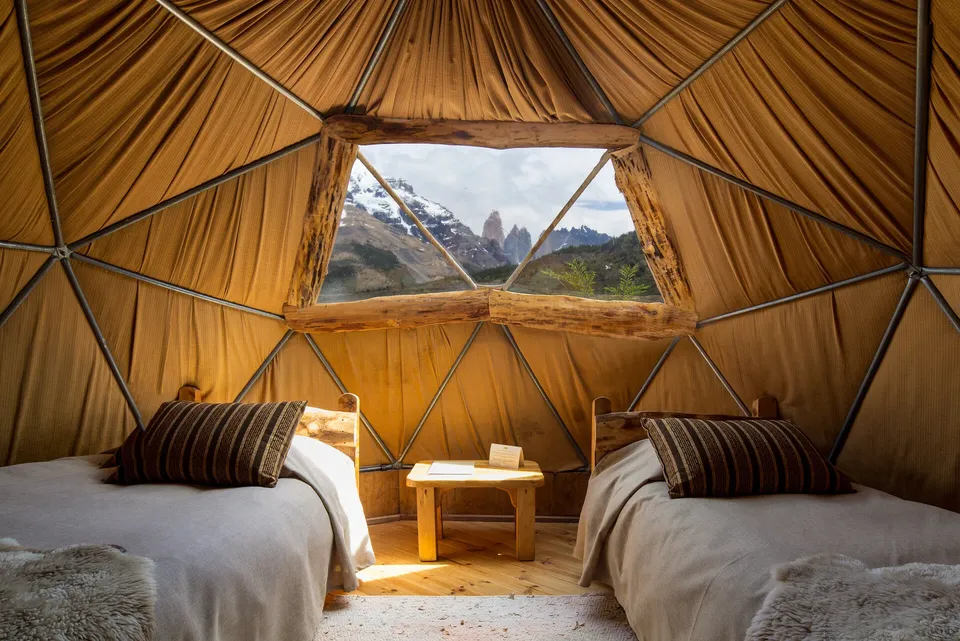
Eco Camp is an exceptional destination that combines sustainability and adventure in one unforgettable experience. With a commitment to preserving the environment, Eco Camp provides guests with immersive opportunities to explore the stunning landscapes of Patagonia and Torres del Paine National Park. From guided treks and wildlife encounters to cultural experiences and gourmet cuisine, this remarkable destination allows travelers to connect with nature while leaving a positive impact on the planet.
Eco-Hotels
They usually have fewer than 50 rooms. Are surrounded by nature and have a tranquil feel. Eco-hotels are more or less similar to eco-lodges but are sometimes associated with cities and towns though not limited to these. These eco-friendly accommodations follow strict policies regarding waste management, the use of chemical-free cleaning, and the conservation of local biodiversity.
Best Eco-Lodges For Your Next Travel:
Las Neubes Holbox, México
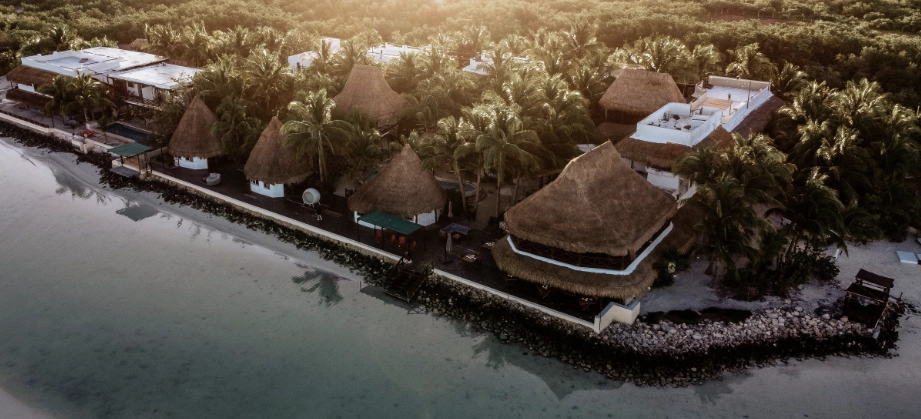
Las Nubes Holbox is a captivating beachfront resort nestled on the pristine shores of Holbox Island in Mexico. The resort features luxurious accommodations, including stylish bungalows and spacious suites, providing guests with a tranquil and comfortable retreat. With its emphasis on sustainability, Las Nubes de Holbox offers eco-conscious amenities and practices, ensuring a harmonious coexistence with the island’s natural beauty.
Kura Design Villas, Costa Rica

Kura Costa Rica is a luxury eco-resort nestled in the lush rainforests of Costa Rica. With its stunning panoramic views of the Pacific Ocean and its commitment to sustainability, Kura offers an unforgettable experience for nature enthusiasts. From its beautifully designed accommodations and infinity pool to its farm-to-table dining experiences and curated adventure activities, Kura Costa Rica is a haven for those looking to connect with nature and indulge in luxurious comfort.
Kawilal Hotel, Guatemala
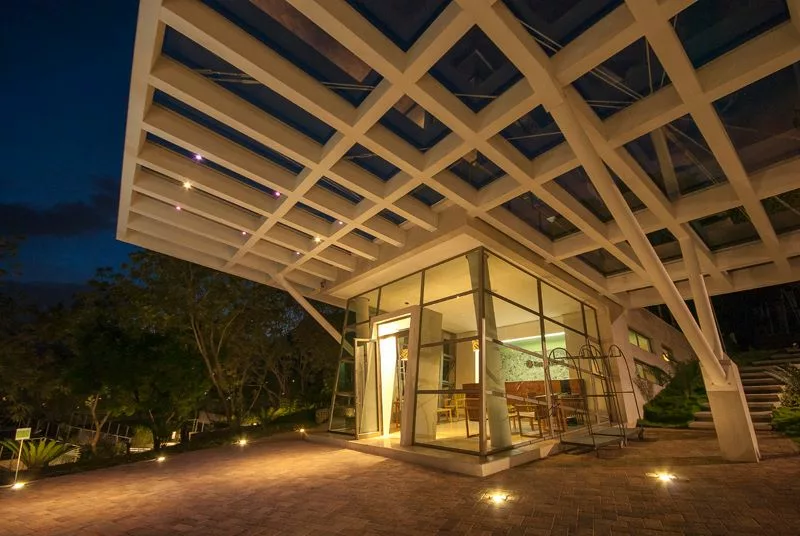
Kawilal Hotel is a tranquil oasis located in the heart of Guatemala, offering a serene escape for travelers seeking relaxation and rejuvenation. With its soothing thermal waters and luxurious spa facilities, Kawilal Hotel provides a unique wellness experience. Guests can indulge in a range of therapeutic treatments, immerse themselves in thermal pools of varying temperatures, and unwind in the lush gardens.
Eco-Resorts
Eco Resorts are located in large pristine areas like isolated islands, mountains, or pristine natural surroundings and have over 100 rooms. The amenities provided are many compared to eco-lodges and hotels and include spaces, restaurants, sports courts, gyms, libraries, pools, bars, etc.
Various activities are carried out like hiking, trekking, cycling, educational tours around the site, yoga sessions, eco-volunteering opportunities, cooking sessions and, live music, keeping in mind sustainability and making sure that no harm is done to nature or local communities.
Best Eco-Hotels For Your Next Travel:
Bawah Reserve, Indonesia

Bawah Reserve is a breathtaking private island resort nestled in the Anambas Archipelago of Indonesia. Surrounded by crystal-clear turquoise waters, lush tropical forests, and pristine white sandy beaches, it offers an idyllic getaway for discerning travelers. The resort boasts luxurious eco-villas and overwater bungalows, each designed with sustainable materials and offering stunning views of the surrounding natural beauty. Guests can indulge in world-class dining experiences, explore vibrant coral reefs, engage in thrilling water sports, or simply unwind at the serene spa.
Picocanoa Rodavento, Mexico
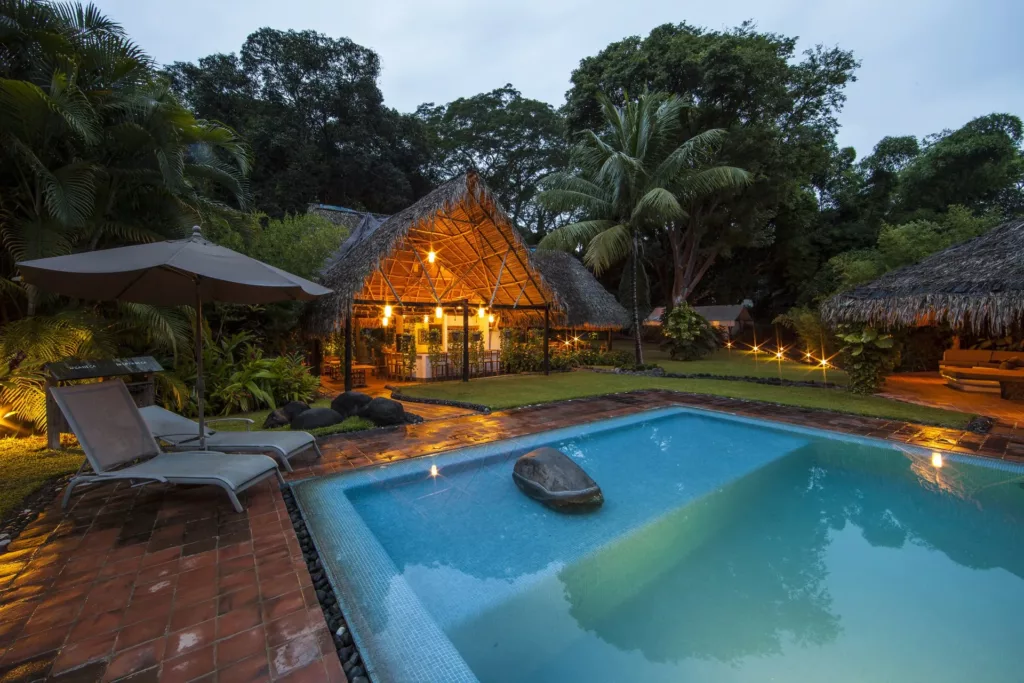
Pico Canoa Rodavento is a captivating adventure retreat located in the heart of Mexico’s stunning Valle de Bravo. From zip-lining through the treetops and exploring the scenic hiking trails to kayaking on the tranquil lake and embarking on thrilling mountain biking adventures, Pico Canoa Rodavento provides endless opportunities for adventure and adrenaline. With comfortable accommodations, delicious cuisine, and warm hospitality, it is the perfect destination for those seeking an unforgettable outdoor escape.
The Laguna, a Luxury Collection Resort & Spa – Bali, Indonesia

The Laguna, a Luxury Collection Resort and Spa in Nusa Dua, Bali, is a prestigious hotel offering a captivating blend of elegance, luxury, and natural beauty. Situated on a pristine beachfront, the resort boasts stunning panoramic views of the Indian Ocean and lush tropical gardens. With its spacious and beautifully designed rooms, world-class amenities, and exceptional service, The Laguna provides an unforgettable retreat for discerning travelers seeking tranquility.
What are the Top Green Accommodation Certifications?
LEED. The LEED program acknowledges buildings that are constructed with sustainable practices, starting from the ground up. It’s important to note that this program only applies to newly built buildings, so it may not be relevant for everyone. However, if you are currently undergoing a major renovation, it’s worth considering the LEED certification standards to see if you qualify. This is a valuable credential that showcases your commitment to sustainability to environmentally conscious travelers.
EarthCheck. EarthCheck is a global organization that has been providing consulting, software, and certification services since 1987. They offer certification for all types of accommodations, from small lodges to large resorts. The certification process is thorough and covers various criteria, such as land-use patterns, waste management techniques, reduction of greenhouse gases, and management of the local community and culture.
Green Seal. The non-profit organization Green Seal empowers consumers, purchasers, and companies to create a sustainable world through science-based programs. Their certification process, which involves annual compliance monitoring and a commitment to continuous improvement, is rigorous.
Audubon Green Lodging Program. Audubon International is a non-profit organization that focuses on the sustainable use of natural resources and environmental education. They also certify hospitality properties through their Audubon Green Lodging Program. This program verifies hotel properties that meet specific environmental standards, with a strong emphasis on water quality, resource conservation, waste reduction, and energy efficiency.
There are also numerous other certifications like Green Tourism Active, Green Key Global, TripAdvisor Green Leaders, and Travelife, which provide certification for eco-friendly stays around the world to make it easier for you to choose the best eco-friendly stay for your next vacation.
Conclusion
When we travel, we have the chance to support sustainability and improve the lives of indigenous communities. By staying in eco-friendly accommodations like eco-lodges, eco-hotels, and eco-resorts, we can make a positive impact. Each of these options prioritizes green living with some slight variations. Embracing sustainable and responsible tourism on your next vacation can have tremendous benefits and contribute to making the world a better place. So on your next trip, choose your accommodation wisely. Have a wonderful trip, eco-champion!
For more eco-friendly inspiration, be sure to check out our Home and Lifestyle section. Discover sustainable tips, green ideas, and innovative solutions to make your daily life more environmentally conscious.
